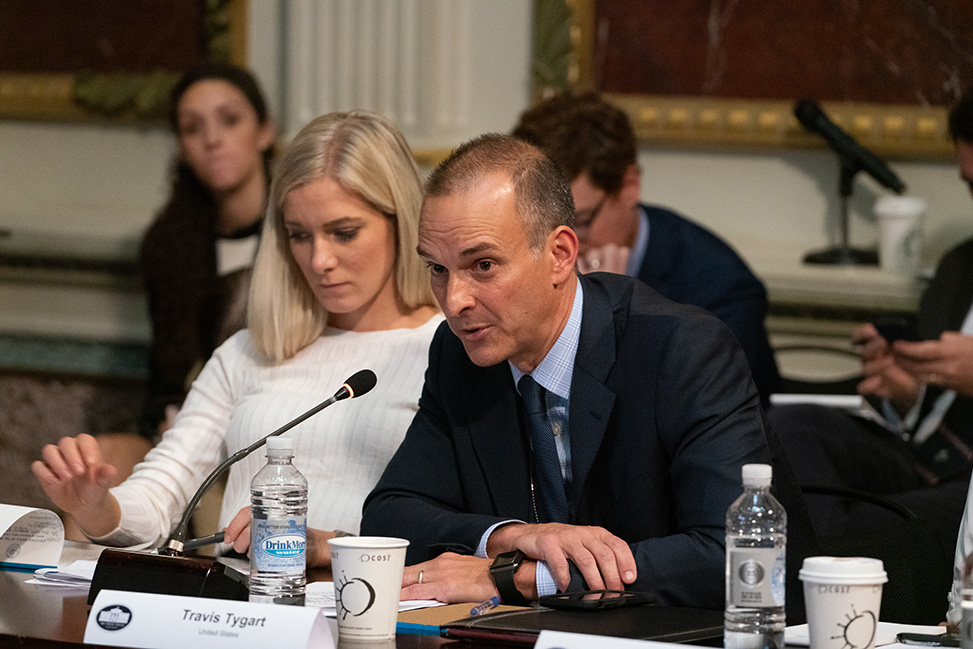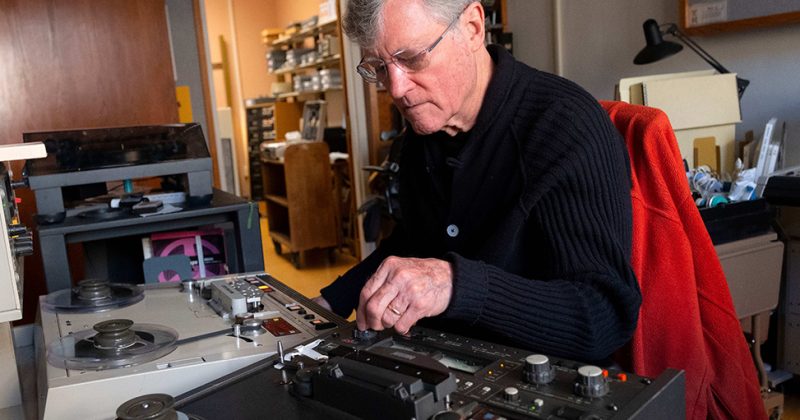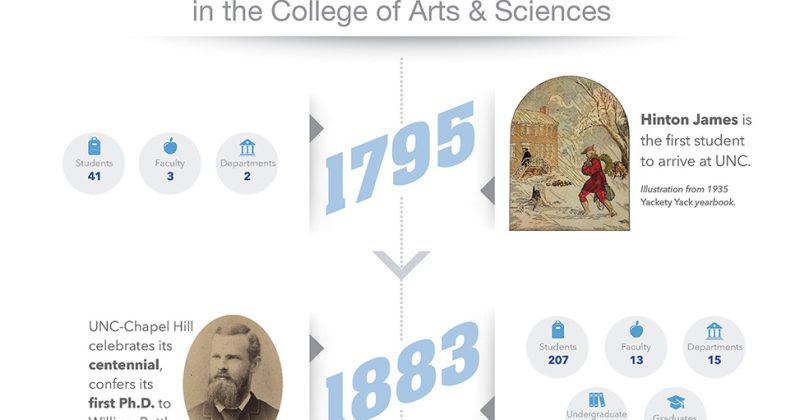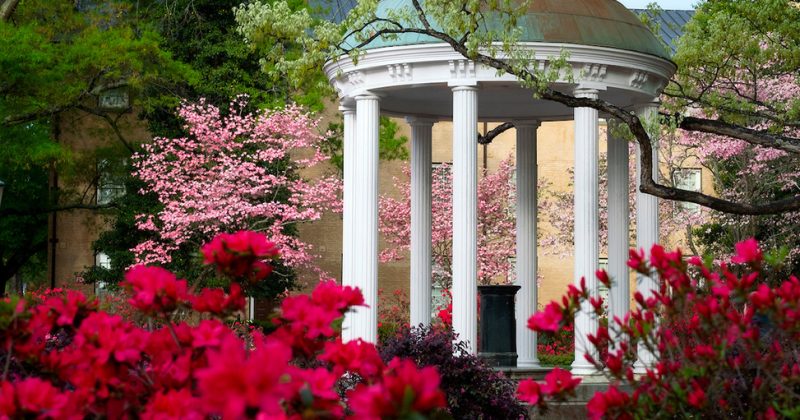
USADA CEO Travis Tygart and runner Emma Coburn, an Olympics bronze medalist, testify at the White-House Anti-Doping Summit in October 2018. (photo by Carl Cox)
Travis Tygart ’93 is the CEO of the U.S. Anti-Doping Agency and on Sports Illustrated’s list of the 50 “Most Powerful People in Sports”
Travis Tygart ’93 is on a mission to clean up the use of performance-enhancing drugs in sports.
His work helped get Russia barred from the 2018 Winter Olympic Games, exposed U.S. schemes to pump athletes with supposedly undetectable steroids and revealed the drugs that fueled cyclist Lance Armstrong’s superhuman success.
“You can’t let those prosper who are trying to stop the principles or the rule of law from prevailing,” said Tygart, the CEO of the U.S. Anti-Doping Agency (USADA). He was named one of the 50 “Most Powerful People in Sports” in 2013 by Sports Illustrated. “Sometimes you have to be tough and willing to muster up the courage to do the right thing for those the rules are there to protect.”
Since joining USADA in 2002, Tygart has testified globally to stop drug misuse. Under his leadership, the USADA investigated the Bay Area Laboratory Co-operative (BALCO), which provided banned steroids to professional athletes, including baseball player Barry Bonds and others. Tygart led the investigation that exposed Armstrong’s fraud.
Tygart grew up in Jacksonville, Florida, and while not Tar Heel born, is Tar Heel bred. Family alumni include his father, S. Thompson “Tom” Tygart ’62, and sister, Lindsay Tygart ’02 (both attorneys); and an uncle, Frederick Tygart ’67, a retired judge. His met his wife, Niki (journalism ’94), at UNC.
He first came to the Carolina campus as a kid to one of Dean Smith’s summer basketball camps. He returned for baseball camp as well. “I saw how to compete firsthand — the right way — how to win by giving it your all but still keeping the sportsmanship lessons that we were taught.”
After graduating with a philosophy degree, Tygart earned a law degree from Southern Methodist University. He began as outside counsel to USADA when it was formed in 2000, became director of legal affairs in 2002 and was named CEO in 2007.
The Colorado Springs-based nonprofit tests for the UFC’s global program and 48 Olympic and Paralympic sports, including USA track and field, basketball, swimming and other sports.
The 2002 BALCO investigation demonstrated how normalized doping had become. “For the first time it showed that drugs had infiltrated sports in a really big way,” Tygart said.
In 2012, Armstrong received a lifetime ban from cycling and was stripped of his seven Tour De France titles. Tygart received death threats but was unyielding: “Our job is not to promote sport, it’s to protect clean athletes and the integrity of the sport — even when it’s tough and the public may not want you to.”
Last October, Tygart and more than a dozen athletes and anti-doping officials from several countries gathered at the White House to call on the World Anti-Doping Agency to ensure drug-free global competition. The summit was in part a response to WADA’s September reinstatement of the Russian Anti-Doping Agency after a three-year ban for state-sponsored doping.
In January, after a statement by Tygart, in which he admonished WADA to “stop being played by the Russians” and reinstate a ban on the country’s athletes, made the news, he got a text from a friend in Europe: “You better invest in your Kevlar wardrobe!”
In a recent profile in his hometown newspaper, a childhood friend and attorney described Tygart as intense and competitive, but said he doesn’t bring a big ego to his role. Would Tygart say that’s accurate?
“I pray to God it is,” he said. “You have to be scrappy and a little tenacious. Those are traits I learned playing baseball and other sports growing up. And they’re still good characteristics to have for success.”
In 2010, Tygart earned UNC’s Distinguished Young Alumni Award. Despite his hectic schedule, he continues to give back to Carolina. He currently serves on the College of Arts & Sciences’ Dean’s Think Tank.
“It’s been extremely exciting and rewarding, and I was thrilled to be asked to be part of it,” he said.
By Pamela Babcock
Published in the Spring 2019 issue | Tar Heels Up Close




